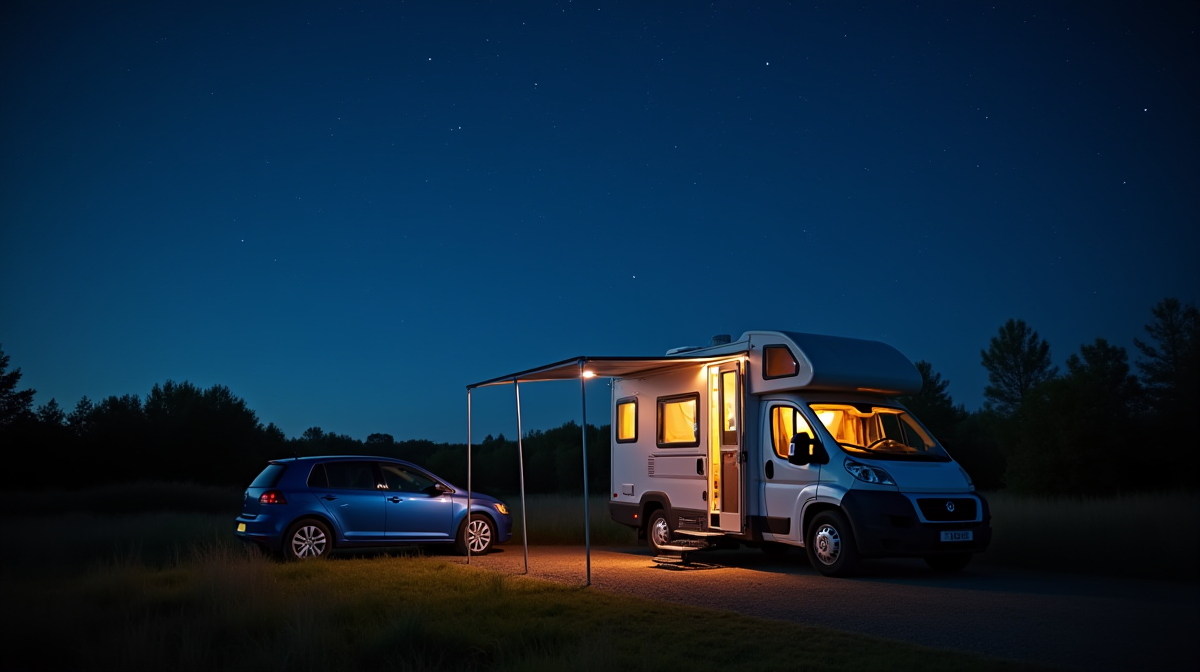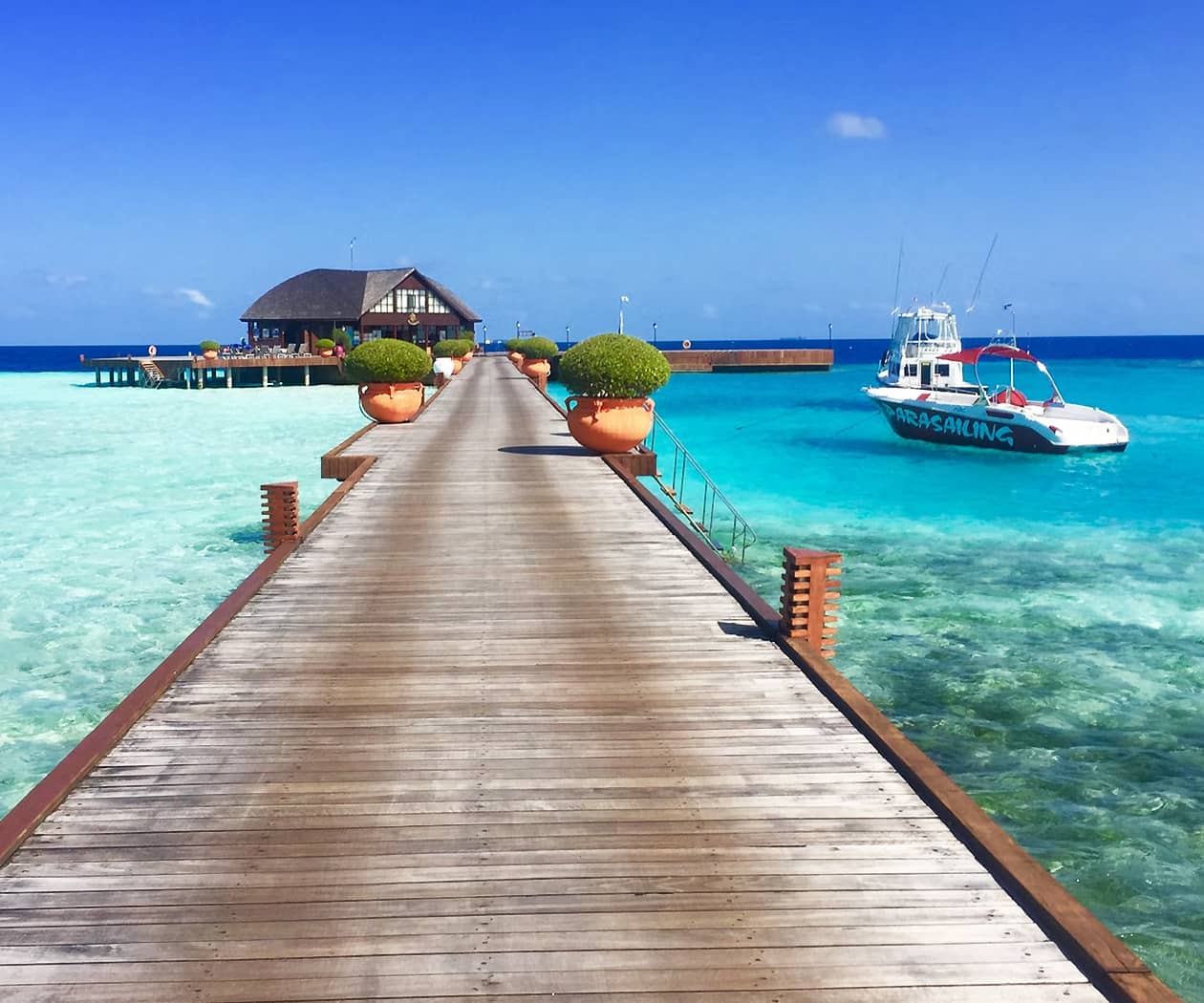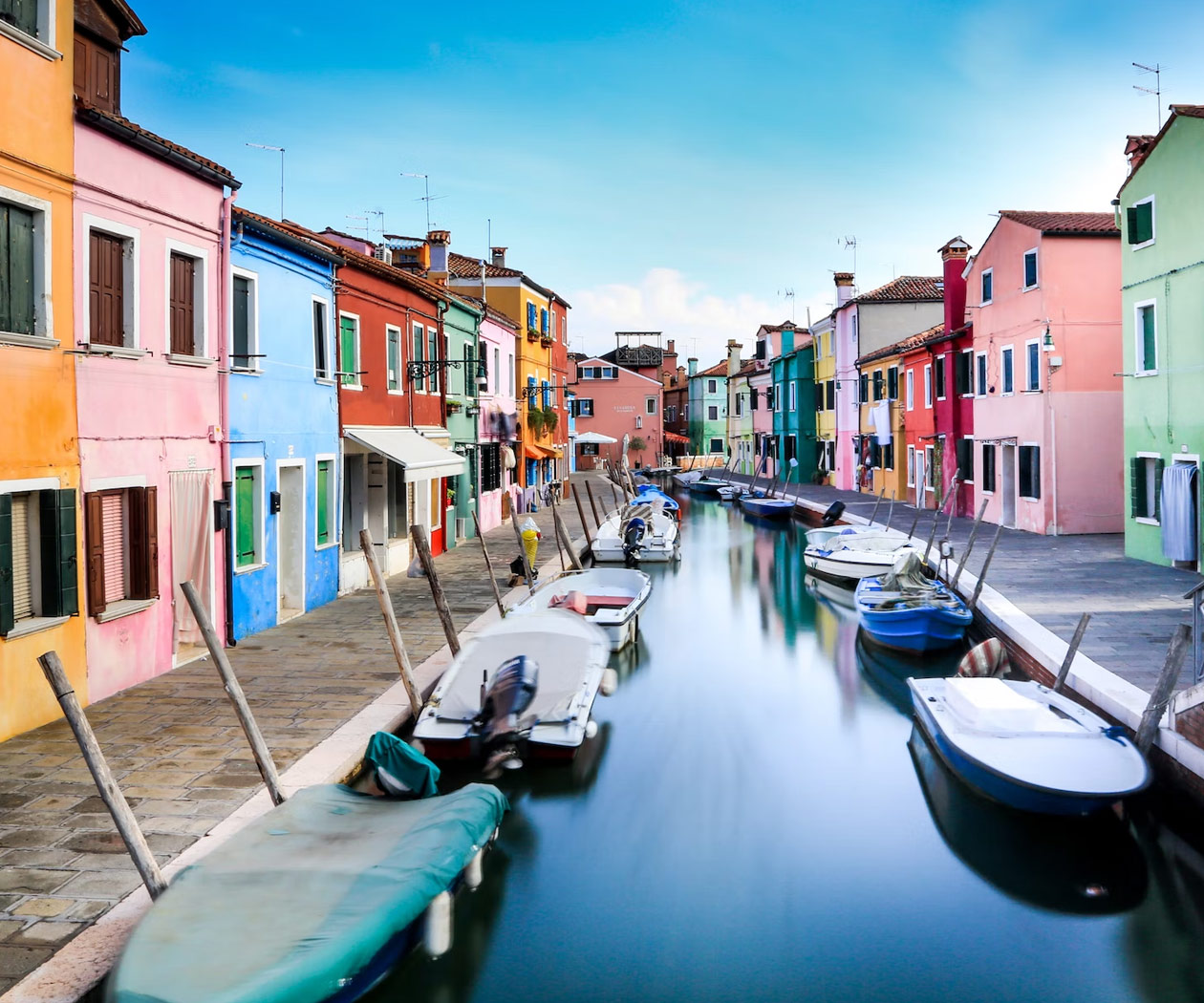Introduction
Setting off on a road trip or starting out on a van life journey are exciting adventures filled with the promise of exploration and freedom. However, one puzzling question that often stands in your way is, “Is it legal and safe to stay overnight in your car or campervan?” Unknowingly violating parking rules can lead to hefty fines or worse, towing of your beloved vehicle. The constant stress about the safety of your temporary accommodation can suck the fun out of your adventure. You don’t want to wake up in the middle of the night to a parking ticket, evacuation order, or even a potential threat. This multi-faceted problem can easily turn your dream trip into a nightmare. In our comprehensive guide, “Know the Ropes: A Comprehensive Guide to Legal and Secure Overnight Stays in Your Car or Campervan”, we demystify these roadblocks. We detail where it is allowed to sleep in your vehicle, and share proven strategies to do it safely. So, buckle up as we navigate this issue, to make your mobile lifestyle journey smoother and worry-free.
Understanding the Legality of Car or Campervan Sleepovers
When planning a trip in your car or campervan, understanding the law is crucial to avoid running into any legal trouble. Often, people wonder: ‘Is it legal to sleep in your car or campervan overnight?’ The answer varies depending on your location. Different states and countries have different laws regarding this matter, and it is essential to know them before you set out.
The Basics
Generally, it’s not illegal to sleep in your vehicle. However, some localities have levied laws and ordinances against it, considering it ‘camping’, which is prohibited in many urban and residential areas. Local bylaws, parking restrictions, or signs indicating “no overnight parking” could also complicate things. Hence, it’s best to research the specific regulations of where you’re planning to stop.
Public Land Consideration
On public lands managed by certain U.S agencies like the Bureau of Land Management (BLM) or the U.S. Forest Service, it’s usually legal to sleep in your vehicle. These are defined as “disbursed camping.” Check their respective websites for further information – BLM and U.S. Forest Service.
However, don’t presume that any secluded area is public land or that any public land allows disburse camping. Always verify before you set up for the night.
Parking Lot Stays
In the USA, many 24-hour large store chains like Walmart, Cracker Barrel, and Costco unofficially tolerate overnighters. Nonetheless, always ask permission from the store management. On occasions when I asked, I’ve always received a warm, welcoming response.
Lessons Learnt
One personal lesson I’ve learned from my own toad trips is that being discreet and adhering to a ‘leave-no-trace’ mindset not only fosters better relationships with locals, but also enhances our chances of nighttime peace.
Online Resources
There are wonderful online resources, like FreeCampsites.net and OvernightRVParking, offering maps and reviews of free camping and parking spots. Having these at your fingertips can reassure you of a safe and undisturbed night.
In conclusion, sleeping in your car or campervan can be both a relaxing end to a day’s travel and a delicate navigation of laws. Thorough research, respect for |local ordinances, and discretion are key to enjoying your overnight resting adventure.
Embrace the need for change: Enjoy the freedom but be responsible. The world of vehicle sleepovers is waiting for you!

Guidelines for Safe Overnight Stays in Your Vehicle
Staying overnight in your vehicle can sometimes be an essentiality, particularly during long road trips. However, safety and legality must always be of primary concern. Here are some guidelines you should follow to ensure a safe and legal overnight stay in your vehicle.
Understanding the Legality:
In many locations, there’s a gray area over the legality of sleeping in your vehicle. Generally, it’s legal if done in a way that is not causing harm, nuisance, or breach of any regulation. Some cities or counties may have specific laws, while others leave it to law enforcement’s judgement. Always check local municipal codes or ask local law enforcement for clarity. I experienced an incident in Tampa Bay, Florida where I was told to vacate an overnight parking lot because it was not permissible to sleep there. It was a lesson well learned – always verify the local rules!
Choosing Safe Locations:
Public lands, hostels, or campgrounds are generally appropriate for overnight stays. Some retail chains like Walmart or truck stops like Flying J also allow overnight parking. OvernightRVParking offers a useful resource. Remember, a quiet, well-lit area is typically safer. I had a rather unnerving experience in a poorly lit side street in Denver where a potential break-in was thwarted by a last-minute police patrol.
Securing Your Vehicle:
Always ensure your vehicle is well protected from both weather and unwanted intruders. Consider investing in insulated window covers or curtains for privacy. Always lock your doors and keep a phone fully charged for emergencies. One unfortunate experience early on in my overnight stays resulted in a dead car battery when I left the radio on. So remember to check all your electronics before settling down for the night.
Preparation and Comfort:
Have a sleeping bag or blankets for warmth, also stock up on food, bottled water, and basic toiletry essentials. Consider a bathroom solution for emergencies, such as a portable camping toilet. Be sure to keep some cash for unexpected expenses. I remember one cold night in Yosemite National Park where I was supremely glad for my $20 portable heater. It really drilled in the importance of being prepared for any conditions.
Respect and Cleanliness:
One last, but vital point is to respect the spaces you use. Always take your trash with you, and leave it better than you found it. We must remember that our actions impact others and the environment, and we share a responsibility in maintaining these places for future travelers.
With these essential guidelines, I hope you can have safe, legal, and relatively comfortable nights in your vehicle. Always remember the lessons learnt from my experiences and those of fellow road travelers. Safe travels!

Best Locations for Possible Car or Campervan Sleepovers
The first consideration in selecting the best locations for potential car or campervan sleepovers is legality. Not all places are open to this kind of overnight accommodation and it’s crucial not to land yourself on the wrong side of the law. I remember once finding myself in hot water when I camped out in my car in Yellowstone National Park. Without knowing it, I had trespassed into a restricted zone and woke up to park rangers knocking my window! So, this is not just a cautionary tale, but a valuable lesson about the importance of knowing the land you’re on and its regulations.
Designated Campgrounds
Within the USA, there are plenty of designated campgrounds where you can legally park your car or campervan to stay overnight. These are usually listed on the National Park Service’s website (https://www.nps.gov/index.htm). Over there, you’ll find more than 10,000 campgrounds, some of them free, others requiring a small fee. It was at one of these legal campgrounds in Yosemite National Park that I experienced one of the most peaceful sleeps under the stars in my campervan. The fantastic part is that these campgrounds typically come with basic amenities such as showers, toilets, and sometimes even Wi-Fi access.
Commercial Campgrounds and RV Parks
Commercial campgrounds and RV parks are another valid option. Although they typically cost more, they offer a host of other services that may make your stay more comfortable. Think electrical hookups, laundry facilities, convenience stores, and sometimes even swimming pools, just to name a few. KOA (Kampgrounds of America) is a good place to start if you’re looking for commercial campgrounds.
Walmart Parking Lots
Yes, you read right. Walmart is notoriously RV-friendly. While this can’t be considered ‘camping’ in the traditional sense, it’s a decent option for those who are on the road. Do remember to confirm with the store manager before settling down for the night though!
Truck Stops, Rest Areas, and Welcome Centers
These are other decent (and legal) alternatives for a night’s rest, although not always the most glamourous. Again, it’s essential to verify parking rules before bunking down. Alternatively you can make use of websites like Allstays (http://www.allstays.com/c/wal-mart-locations.htm) that offers listings of permitted rest spots across the country.
Boondocking and Dispersed Camping on Public Lands
Suppose you are adventurous and prefer more isolated spots. In that case, you may want to consider boondocking or dispersed camping on public lands managed by the Bureau of Land Management (BLM) or the US Forest Service. These agencies often allow free camping on their lands, unless otherwise posted.
In conclusion, there are numerous spots where you could legally park for car or campervan sleepovers. But the most critical part is doing your homework and understanding the rules of the land. Because trust me, an unexpected knock on the window in the middle of the night will startle much more than just the wildlife!

Etiquette and Rules for Overnight Stays in Different Areas
The Legality of Parking Your Vehicle Overnight
Specific regulations about parking your vehicle, like a car or campervan, overnight can highly vary depending on the local laws of the area you’re in. But to generalise, overnight parking is generally allowed in most places so long as it doesn’t breach any specific by-laws or restrictions set by local authorities.
In some areas like Victoria, Australia, those camping in campervans are permitted to stay on designated public lands. Meanwhile, sleeping in your car is illegal in different states across the USA unless in designated campsites.
Minimizing Risk and Optimizing Safety
The legality aspect aside, overnight stays require adequate preparation for safety. Regulations are typically in place to ensure the safety of individuals and to maintain peace in the area.
- Be respectful of the local community: Remember that, while you might be in the middle of an adventure, local people are going about their everyday lives. Keep noise levels to a minimum, especially late at night and early in the morning.
- Leave no trace: Always clean up after yourself. A surprising number of areas permit overnight stays because previous visitors have been considerate. Keep this goodwill going for future explorers.
From personal experience, I learned the importance of always seeking up-to-date, local information. I remember one instance where I parked in an area in which I misunderstand the regulation. As a result, I ended up receiving a parking ticket. This taught me the value of double-checking regulations with local authorities
Behind-The-Scenes Insights
My love for travel and a stint of living in a campervan during a cross-country adventure fuel this section’s insights. My experiences, failures, and lessons taught me that the key is to plan ahead of time, respect regional rules and norms, and always ensure individual and community safety.
Respecting Local Culture
Wherever your travels may take you, remember to respect local customs and traditions. Just as you would in a hotel or Airbnb, behave responsibly and respectfully in your campervan. This mindfulness can make a big difference in maintaining positive relations between locals and nomadic travelers, and contributing to the sustainability of vehicle camping in varied locales.
In conclusion, my travels have taught me that being adequately informed and culturally sensitive can often be the difference between a memorable adventure and a night spent fretting in the campervan. So, enjoy the freedom of the open road, but remember to travel responsibly and respectfully.
The bottom line? Always check local laws about overnight stays in your vehicle and be respectful of the communities you are visiting. Doing so will not only prevent any legal issues but also contribute to a rewarding and enriching travel experience.

Survival Tips and Essential Gear for Vehicle Sleepovers
As an independent traveler myself, I’ve spent countless nights sleeping in my campervan, close to nature. From parking lots in big cities to beach-side spots, here’s what I found about resting legally and safely in your vehicle.
Certain Factors to Know Beforehand
Before venturing into an overnight stay in a vehicle, it’s essential to know some crucial things: legalities, safety, and comfort. Understanding these factors can make the difference between a peaceful slumber under the stars and a knock on the window from local law enforcement.
Legalities of Vehicle Sleepovers
Regulations surrounding vehicle sleepovers vary widely, so it’s important to research beforehand. In some countries, like Sweden and Scotland, the rules are relatively lax, thanks to freedom to roam laws. In others, such as several U.S states, people can face citations or even arrest. Check out OvernightRVParking @dot@ com and iOverlander @dot@ com for a detailed list of sleep-friendly places. From my experience, always ask permission if possible.
Positioning and Safety
(Personal Insight: My scariest night was in a poorly lit parking spot. I woke around 3 AM due to incessant honking and yelling. Since then, I’ve learned to choose locations wisely. )
Select well-lit, safe spaces for your vehicle sleepover. If it’s a campsite, check-in before dark. Parking near the entrance or exit area is advisable. For safety, always lock your doors and keep valuable items hidden. You might also want to keep a GPS-enabled device handy in case you need to quickly leave or alert authorities.
Comfortable Sleeping Conditions
Stiff necks, cramped legs, and poor sleep quality are some downsides I’ve faced. Invest in car-friendly sleeping gear: inflatable mattresses, travel pillows, and blankets. Adjust seats for optimum space. And remember, ventilation is key to prevent condensation and keep the air fresh.
Essentials Kit
A well-stocked essentials kit is key for an overnight stay. Some things I NEVER leave without are:
- First Aid Kit
- Portable phone charger
- Emergency food and water supplies
- Flashlight
- Toilet paper
Note: This is not exhaustive, adjust to your needs.
Remember, being prepared can make your night less stressful and your awakening more pleasant. Understand the law, be safe, and most importantly, enjoy the unique sense of freedom that vehicle sleepovers can provide!
Happy Travelling!

Legal Consequences and How to Avoid Them.
Understanding the legalities around sleeping in your vehicle overnight is crucial to avoid potential fines, penalties, or even damage to your reputation. While the laws vary from place to place, there are some general rules you can follow to avoid any legal consequences.
Know the Legal Landscape
Research the laws regarding sleeping in vehicles in the location you plan to stay overnight. Some places have specific rules preventing this, while others allow it under certain circumstances. Websites like www.sleepinginmycar.com provide comprehensive guides and maps to help you understand the laws in different regions.
Don’t Trespass
Most private properties have strict rules against overnight camping on their grounds. Always seek permission before choosing to stay overnight in a parking lot or similar areas. Fine for illegal camping can range from $100 to $1000, depending on the jurisdiction. I’ve personally learned this the hard way when I received a hefty $500 fine for trespassing in a private parking lot in Colorado.
Utilize Designated Areas
Many national and state parks, rest areas, and campgrounds allow overnight camping. They often provide amenities like toilets and running water, making the experience more comfortable and legal. Take advantage of websites like www.parkstay.vic.gov.au or apps like iOverlander.
Be Respectful
After spending several years sleeping in my vehicle while traveling, I’ve found that following a ‘leave no trace’ mindset helps to avoid negative encounters with law enforcement or locals. Keep your space clean, limited noise, and respect the surroundings.
Prevent Nuisances
Don’t become a public nuisance. Keeping a low profile is essential. Having too much exterior lighting, loud music, or blocking traffic paths creates unnecessary attention and may invite legal trouble. Once, a close friend ended up with a citation just because his van was causing a slight blockage on a public road.
Overall, by staying informed, respectful, and discrete, you can avoid most legal issues related to sleeping in your vehicle. However, you should always be prepared to move on if asked by law enforcement or property owners. Always remember that it’s better to be safe than sorry when it comes to legal matters.
Last but not least, consider consulting a lawyer if you frequently sleep in your vehicle. An expert can help you understand the various laws and regulations, and how you can best protect yourself against potential legal issues.
Remember, the legal landscape for vehicle camping is diverse and ever-changing. What worked today might not be allowed tomorrow. Always stay informed and stay legal.
Conclusion
In conclusion, understanding the intricacies of the law surrounding overnight stays in your car or campervan is not only a means to assure a compliant, secure, and hassle-free journey, but also an adventure in itself. Hopefully, “Know the Ropes: A Comprehensive Guide to Legal and Secure Overnight Stays in Your Car or Campervan”, has enlightened you, and perhaps, even sparked your wanderlust.
Navigating the legal landscape can seem daunting at first, but armed with knowledge and preparation, you can embrace the freedom of the road, flexibly and legally. It is always recommended to research specific state and city laws before you embark on your trip, ensuring that your chosen stops permit vehicle camping. Paying heed to local restrictions, advocating cleanliness and displaying respect for local communities will not only make your journey peaceful but also contribute to promoting a sustainable and respectful travel culture.
Pioneering this form of travel demonstrates an adventurous spirit, a sense of independence, and a desire to embrace the simple joys. This informative journey doesn’t stop here. Keep exploring related resources, join online forums and groups that offer updated insights into changes in laws and regulations. Share your experiences and learn from others to continually refine your road-based adventures.
Remember, each pothole, each curve, each scenic overlook tells a story. Staying overnight in your vehicle is your chance to write that story your way. Here’s to safe, legal, and unforgettable nights under the stars — right from your car or campervan! Here’s to journeys made richer not by where you’re going, but how you get there.
Trust yourself, trust your wheels, respect the law, and let the rest unfold beautifully. Here’s to the open road – may it ever inspire your heart with its promise of adventure. Happy travels!









